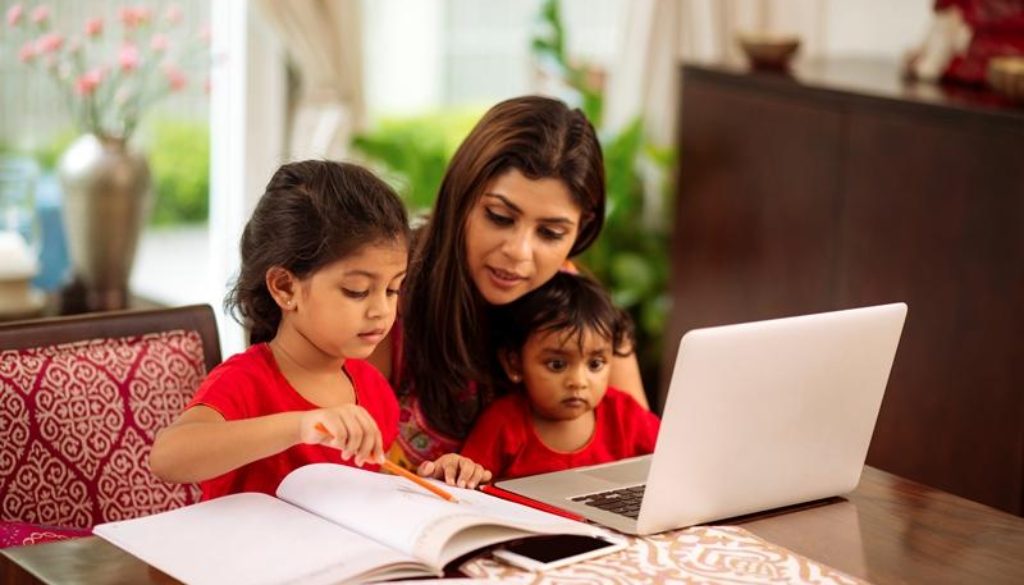In recent years, homeschooling in India has emerged as a powerful alternative to the traditional education system, gaining momentum among parents, educators, and learners alike. As more families seek personalized learning experiences, the movement is seeing a rapid increase in adoption. One of the most prominent advocates for this growing trend, Vidhi Jain, delivered a compelling speech at Josh Talks, illuminating the transformative potential of homeschooling and unschooling.
In this blog, we’ll explore the rise of homeschooling in India, its numerous benefits, the challenges faced by homeschooling families, and practical tips for those considering this path.

Homeschooling in India: A Growing Movement
The homeschooling landscape in India has evolved significantly, with over 10,000 families now opting for this educational model. While traditional schooling continues to dominate, homeschooling has begun to challenge this norm, offering a more flexible, student-centered approach. Vidhi Jain emphasized that parents, disillusioned with rigid curriculums, are increasingly taking charge of their children’s education.
Factors Driving Homeschooling in India
- Rising Discontent with Traditional Education: Many educators, frustrated with the limitations of mainstream schooling, are leading the homeschooling movement. By homeschooling their own children, they craft a learning environment that prioritizes creativity, critical thinking, and practical knowledge.
- Cultural Shift: Homeschooling in India is not only a response to academic dissatisfaction but also a cultural shift. Parents are gradually recognizing the value of an education tailored to their child’s pace and interests.
Benefits of Homeschooling in India
The surge in interest around homeschooling in India is not without reason. Several advantages make it a compelling choice for families.
1. Personalized Education
One of the most attractive aspects of homeschooling is the customized learning plans that cater to each child’s unique needs. Unlike traditional schools, where curriculums can feel one-size-fits-all, homeschooling allows parents to tailor the curriculum to match their child’s strengths, weaknesses, and interests. This personalized approach fosters a deeper love for learning and enables children to explore topics they are passionate about.
2. Flexibility in Learning
Homeschooling in India offers unparalleled flexibility. Parents can design their schedules, allowing children to learn at their own pace and take part in various real-world experiences. Travel, community service, hands-on activities, and independent study all form an integral part of the homeschooling experience, making learning dynamic and enriching.
3. Holistic Development
Traditional schooling often focuses heavily on academics, but homeschooling emphasizes holistic development. Children can participate in activities beyond the classroom, including music, arts, sports, and even entrepreneurial ventures. By doing so, they develop a broader skill set, become well-rounded individuals, and gain life skills that traditional schooling may not always prioritize.
Real-Life Homeschooling Success Stories in India
Vidhi Jain shared the inspiring story of Malvika Joshi, a homeschooler from India who secured admission to MIT without formal schooling credentials. Malvika’s success story is just one of many that highlight the potential of homeschooling to open doors to unconventional paths of success. These examples illustrate how homeschooling in India can produce innovative, independent thinkers who are well-equipped for global opportunities.
Challenges of Homeschooling in India
While homeschooling offers numerous benefits, it also comes with its own set of challenges, especially in India, where traditional schooling is deeply ingrained in society.
1. Legal Recognition and Social Acceptance
One of the biggest hurdles for homeschooling families is the lack of legal recognition in India. Although homeschooling is not explicitly banned, the lack of clear laws or regulations can make parents anxious about their child’s future prospects. Additionally, social acceptance remains an obstacle. Families often face skepticism from relatives, neighbors, and even officials who question the validity of homeschooling as a viable educational choice.
2. Curriculum Development
Designing an effective curriculum can be daunting for homeschooling parents. However, with the rise of online resources, educational platforms, and homeschooling communities, parents are finding it easier to access quality educational materials. Support networks also offer guidance on how to structure learning plans and stay aligned with education standards.
3. Socialization Concerns
A common criticism of homeschooling is the perceived lack of socialization. However, homeschooling communities in India are creating opportunities for children to interact with peers through group activities, co-ops, and regular social events. This ensures that homeschooled children are exposed to collaboration, teamwork, and social skills, just as they would be in traditional school settings.
Successful Homeschooling Practices in India
To navigate these challenges, families are adopting innovative approaches to homeschooling in India. Vidhi Jain’s advocacy for unschooling is one such practice that’s gaining traction.
Unschooling Philosophy
In unschooling, children direct their own learning based on their interests. This philosophy breaks away from the structured curriculum model and encourages self-directed learning, fostering creativity and curiosity from a young age. This approach is particularly popular among families looking to develop independent thinkers.
Alternative Learning Spaces
Programs like Creativity Adda in Delhi are creating new avenues for hands-on learning, offering courses in arts, crafts, and theater. These innovative spaces provide real-world skills development that complements the unschooling philosophy.
Parent-Child Collaboration
A major hallmark of homeschooling in India is the close collaboration between parents and children. By working together to design educational experiences, children learn to take responsibility for their education, promoting self-reliance and intrinsic motivation.
Practical Tips for Homeschooling in India
If you’re considering homeschooling in India, here are some essential tips to get started:
- Research Homeschooling Laws: Each state may have different regulations, so it’s important to understand the legal landscape before starting. Connecting with local homeschooling groups can help you stay informed and guide your process.
- Tailor the Curriculum: Design a curriculum that fits your child’s interests. Use a combination of textbooks, online platforms, practical projects, and field trips to ensure your child receives a well-rounded education.
- Join Homeschooling Networks: Communities offer invaluable support. Attend homeschooling conferences, engage with forums, and participate in meetups to share experiences and resources with other families.
- Evaluate Regularly: Regular assessment is key to ensuring that your child is progressing. Adapt your teaching methods as needed to cater to their evolving interests and goals.
The Future of Homeschooling in India
The homeschooling movement in India is not just a passing trend but a transformative educational choice that provides families with freedom and flexibility. With growing communities, success stories like Malvika Joshi, and advocates like Vidhi Jain, homeschooling in India is carving a new path for the future of education.
As the Indian education system continues to evolve, homeschooling offers an exciting opportunity to rethink how children learn, paving the way for an education system that prioritizes exploration, creativity, and lifelong learning.
In conclusion, whether you’re considering homeschooling as a serious alternative or just exploring the concept, it’s clear that homeschooling in India is empowering families to embrace educational freedom and nurture the next generation of independent thinkers and learners.

